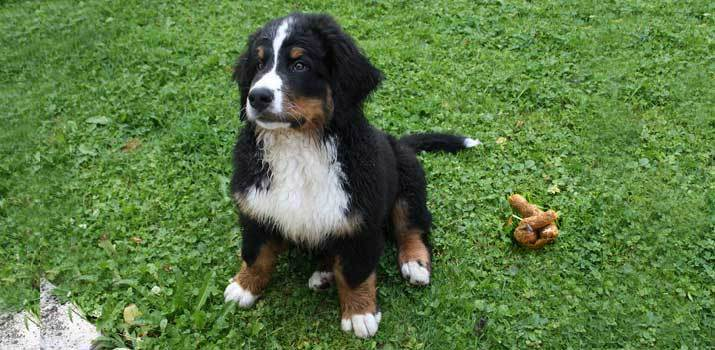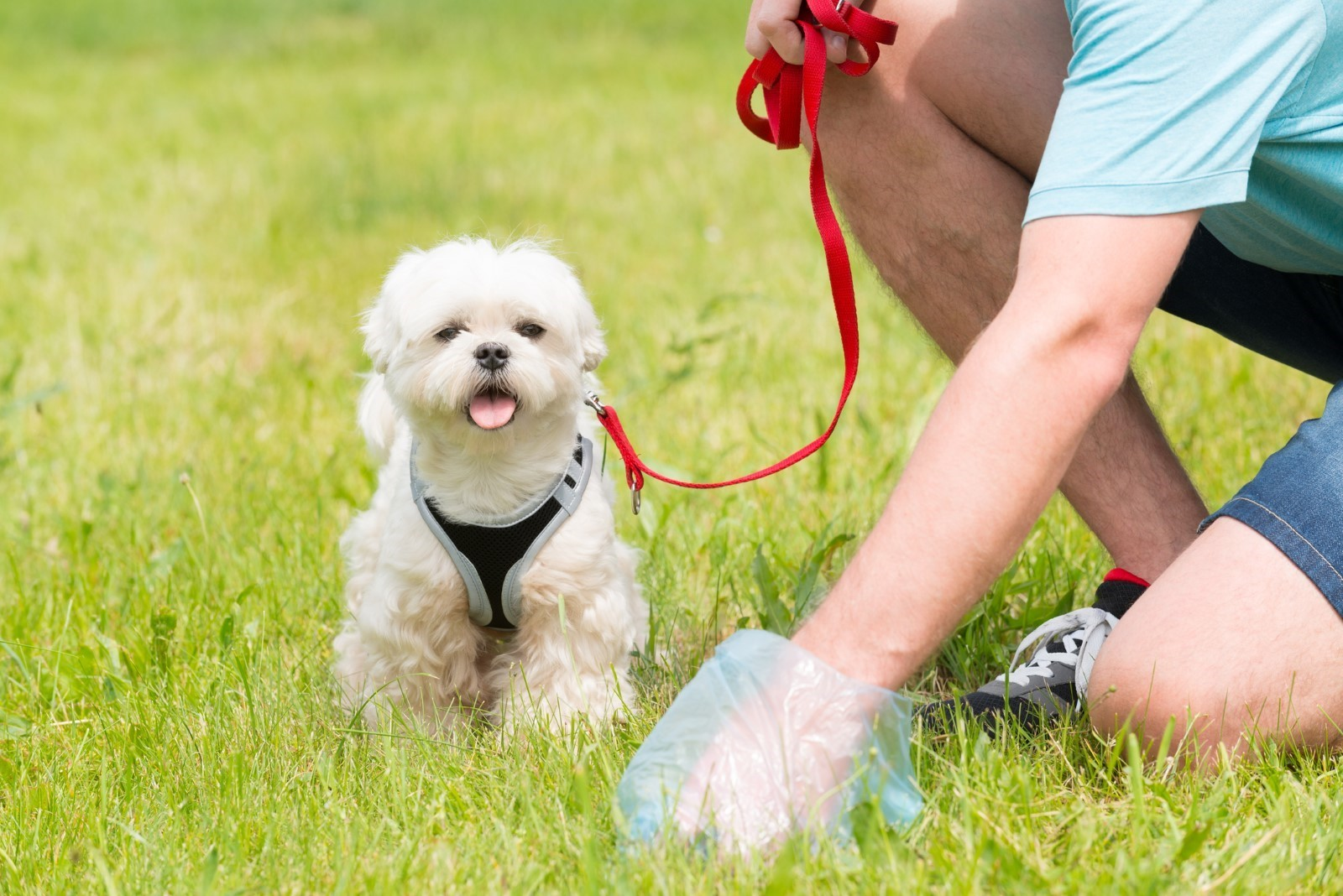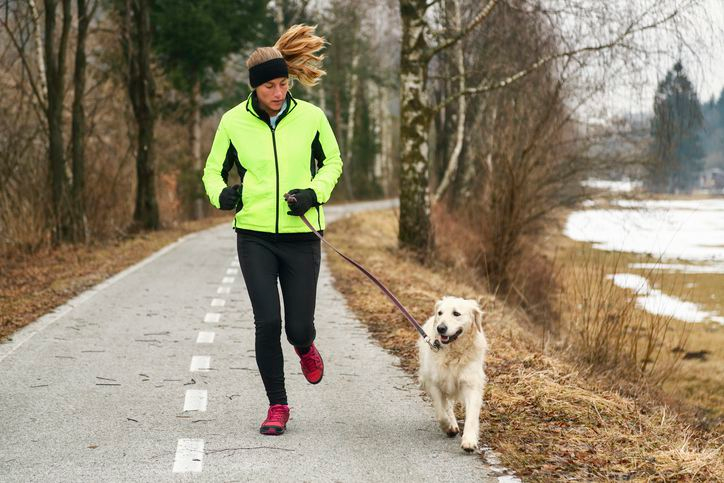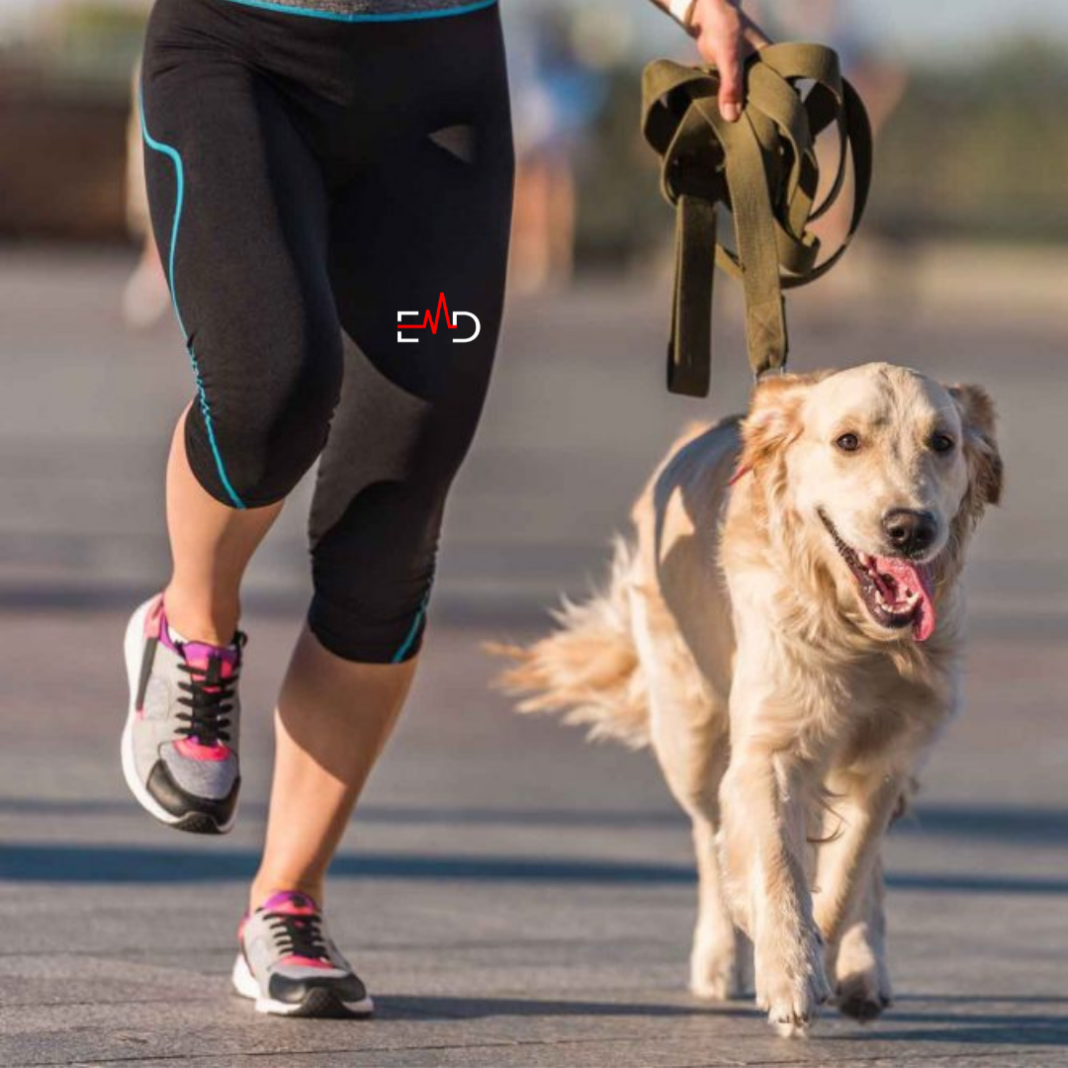Exercise Daily – As a runner or athlete, you are likely familiar with the normal hazards of running on city streets, such as uneven pavement, traffic, and pollution. However, there is of course a lesser-known danger that can pose a serious health risk – yellow dog poop. In this article, we will explore the hidden dangers of yellow poop dogs on city streets for athletes and runners, including the potential health hazards and how to protect yourself.
Dog poop on city streets is not only an unsightly and unpleasant problem but also a serious health risk for athletes and runners who use these streets for exercise. Dog feces may contain various types of harmful bacteria and parasites, which can cause serious health problems to humans. In this article, we will explore the hidden dangers of dog poop on city streets for athletes and runners and provide tips on how to avoid them.

Types of diseases found in dog poop
Dog poop left untreated, can contain a range of harmful bacteria and parasites that can pose a threat to human health. Abstract The risk to public health from a large number of dog stools present on streets of urban areas is cause for concern.
Roundworms: A Parasitic Threat
Roundworms are a type of parasitic worm that can be found in dog feces. These worms can infect humans if they accidentally ingest the eggs found in dog feces. Once inside the former, dog’s life or owner’s body, roundworms can cause a range of symptoms, including abdominal pain, diarrhea, and vomiting. In some cases, roundworm infections can even lead to more serious complications, such as blindness or damage to internal organs.
Prevention is key when it comes to roundworms. Make sure to clean up after your dog promptly and dispose of their waste properly. It’s also important to practice good hygiene habits, such as washing your hands thoroughly after handling your dog’s stool or coming into contact with their feces.
Hookworms: A Burrowing Menace
Hookworms are another type of parasitic worm that can be found in a dog’s stomach and feces. These worms can burrow into the skin of humans and cause a condition called cutaneous larva Migrans. Symptoms of this condition include itching, redness, and blisters.
To prevent hookworm infections, it’s important to clean up after your dog promptly and dispose of their food and treat their waste properly. You should also avoid walking your pet barefoot in areas where dogs are known to defecate.
Salmonella: A Bacterial Threat
Salmonella is a type of bacteria that can be found in dog feces. Infection with this bacteria can cause symptoms such as diarrhea, fever, and abdominal pain. In some cases, salmonella infections can even lead to more serious complications, such as parasitic infections such as sepsis or meningitis.
To reduce your pet at risk of salmonella infections, make sure to clean up after your dog promptly and dispose of their own food and waste properly. You should also practice good hygiene habits, such as washing your hands thoroughly after handling your dog’s food or coming into contact with their feces.
E. Coli: A Common Bacterial Threat
E. Coli is another type of bacteria that can be found in a dog’s diet and feces. Infection with this bacteria can cause symptoms such as diarrhea, abdominal pain, and fever. While most people recover from E. Coli infections within a week, some cases can lead to more serious complications, such as kidney failure.
To prevent E. Coli infections, it’s important to clean up after your dog promptly and dispose of their waste properly. You should also practice good hygiene habits, such as washing your hands thoroughly after handling your dog or coming into contact with their feces.

How dog poop affects the environment
Dog poop not only poses a health risk to humans but also has negative effects on the environment. When dog poop is not picked up, it can lead to pollution and water contamination. Rainwater can carry bacteria and parasites from dog poop into streams, rivers, and other water sources, contaminating them and making them unsafe for human use.
Tips for runners and athletes to avoid dog poop
As a runner or athlete, it’s essential to take certain precautions to avoid the dangers of dog poop when exercising in public areas. Running or walking in a park or neighborhood can be enjoyable, but the presence of dog feces can pose a serious health risk. Here are some tips to keep in mind to protect yourself from this hidden danger.
Stick to the Sidewalk
The sidewalk is the safest place to run or walk on city streets. Dogs typically relieve themselves in grassy areas or open fields, so avoiding these places can reduce the risk of stepping on dog feces. It’s best to stick to the concrete pavement, which is easy to clean and reduces the likelihood of stepping on dog poop. Try the Best Shoes for Standing and Walking for comfort.
Wear Appropriate Shoes
Wearing the right shoes is crucial when it comes to protecting yourself from your dog’s body and feces. Shoes with thick soles and sturdy construction can prevent sharp objects in your dog’s poop or feces, such as sticks or pieces of glass, from penetrating your skin. Investing in a good pair of running shoes is an excellent way to protect your feet and reduce the risk of infections.
Be Mindful of Your Surroundings
As a runner or athlete, you should always be aware of your surroundings. Look out for signs warning of dog feces or areas where dogs are likely to be present. Pay attention to the presence of other dogs in the area, as their owners may not have picked up after them. Avoid running or walking through areas where dogs are playing or congregating.
Carry a Flashlight
If you’re running or walking in the early morning or late at night, carrying a flashlight can be helpful. It can help you spot dog feces in the dark, reducing the risk of stepping on it. Additionally, carrying a flashlight can help you avoid other hazards, such as uneven pavement or obstacles on the sidewalk.
Clean Your Shoes
After your run or walk, make sure to clean your shoes thoroughly. Use a hose or bucket of water to rinse off any visible dog feces and then scrub your shoes with soap and water. This will help remove any remaining bacteria or germs from your shoes, reducing the risk of infection.
Running or walking in public areas can be enjoyable, but it’s essential to take precautions to avoid dog feces. By sticking to the sidewalk, wearing appropriate shoes, being aware of your surroundings, carrying a flashlight, and cleaning your shoes, you can reduce the risk of stepping on dog poop and protect yourself from harmful bacteria and infections. Remember to stay safe and keep your environment clean while you exercise.

Consequences of not cleaning up after dogs
In many cities and municipalities, not cleaning up after your dog can result in fines and penalties. Aside from the legal consequences, not cleaning up after dogs also has social implications. Dog owners have a responsibility to clean up after their pets to ensure the safety and health of two dogs and others who use the same public spaces. Failing to do so can lead to negative social judgments and cause public relations problems.
As a responsible dog owner, it’s crucial to pick up after your dog when they do their business. Failing to clean up after your furry friend can have a variety of negative consequences, not just for other people’s shoes but also for your dog’s health. For instance, if your dog eats something it shouldn’t or has a food intolerance, its poop can become unhealthy and cause problems with its intestinal tract.
A common sign of this is a yellow stool, which can indicate a variety of health and digestive issues. When you don’t clean up after your dog, their stools can accumulate and create a breeding ground for harmful bacteria, leading to infections and even diseases. So, it’s not just about keeping the streets clean, but also about ensuring your dog has healthy poop and a healthy digestive system.
Health Risks of Yellow Poop Dog
While the yellow color of dog poop may seem harmless, it can pose a serious health risk to runners and athletes who come into contact with it on city streets. One of the biggest risks is the transmission of parasites and bacteria. Dogs and cats can carry a variety of bacteria and parasites in their poop, including Salmonella and E. coli, which can cause severe gastrointestinal illness in humans.
In addition to the risk of infection, yellow dog food and poop can also contain harmful chemicals and toxins. For example, some dogs may have ingested pesticides or other toxins in their food or environment, which can be excreted in their poop. Exposure to these chemicals can cause skin irritation, respiratory and liver problems, and other health issues. Try the Best Affordable Running Shoes for Women.
How to Protect Yourself
Fortunately, there are several steps you can take to protect yourself from the hidden dangers of yellow poop dog on city streets. First and foremost, always be aware of your surroundings and watch where you step. Avoid running through areas where dogs are likely to relieve themselves, such as grassy areas or sidewalks near parks.
If you do come into contact with yellow dog poop, be sure to wash your hands thoroughly with soap and water as soon as possible. Avoid touching your face or mouth until you have had a chance to clean your hands.
You may also want to consider wearing gloves or other protective gear when running in areas where yellow dog poop is common. This can help to reduce your risk of exposure to bacteria and parasites.
Conclusion
Yellow poo or dog poop may seem like a minor nuisance, but it can pose a serious health risk to athletes and runners who come into contact with it on city streets. By taking a few simple precautions, such as watching where you step and washing your hands thoroughly, you can protect your animals and yourself from the hidden dangers of yellow poop dog and stay healthy while running.
Dog poop on city streets is not just an unpleasant sight but a significant health risk for runners and athletes. The feces can contain harmful bacteria and parasites that can lead to severe health conditions. It’s crucial to take precautions when running or exercising in public areas to avoid the hidden dangers of dog poop. . Dog owners and pet owners themselves must also take social responsibility for cleaning up after their pets to avoid negative social judgments and public relations problems.
FAQs – Hidden Dangers of Yellow Poop Dog on City Streets for Athletes and Runners
Can yellow dog poop make you sick?
Yes, yellow dog poop can pose a serious health risk to humans, as it can contain harmful bacteria and parasites.
How can I protect myself from yellow dog poop?
You can protect your pet and yourself from yellow dog poop by watching where you step, washing your hands thoroughly after contact with animal either, eating well and wearing protective gear when running in areas where yellow dog poop is common.
What should I do if I come into contact with yellow dog poop?
If you come into contact with yellow dog poop, be sure to wash your hands thoroughly with soap and water as soon as possible. Avoid touching your face or mouth until you have had a chance to clean your hands.
Why is yellow dog poop a problem for athletes and runners?
Yellow dog poop can pose a serious health risk to athletes and runners who come into contact with it on city streets or public property, as they may be more likely to come into contact with or eat it while running or exercising outdoors. Additionally, athletes and runners may be more susceptible to illness due to their increased physical activity and exposure to environmental hazards.
Can I get sick from stepping on dog poop?
Yes, stepping on a cat or dog’s poop yellow poop can transmit bacteria and parasites to humans through open cuts or wounds in the skin, leading to health issues. dog stools
How long does it take for dog poop to decompose?
Dog poop takes about a year to decompose entirely. During this time, it can attract pests and pose health risks to humans.
Can I catch roundworms from my own dog’s poop?
Yes, it’s possible to contract roundworms from your dog’s feces. Always clean up after your dog and practice good hygiene to reduce the risk of parasitic infection yourself.
Can dog poop cause water pollution?
Yes, dog poop can cause water pollution when rainwater carries bacteria and parasites from the feces into streams, rivers, and other water sources. It can contaminate the drinking water, and make it unsafe for human use.




